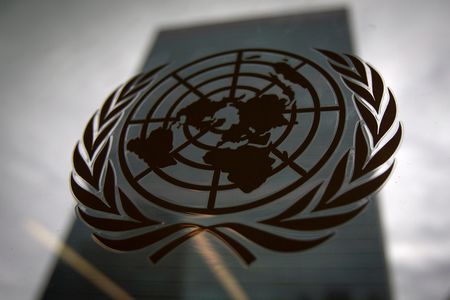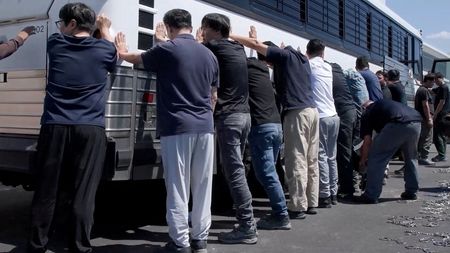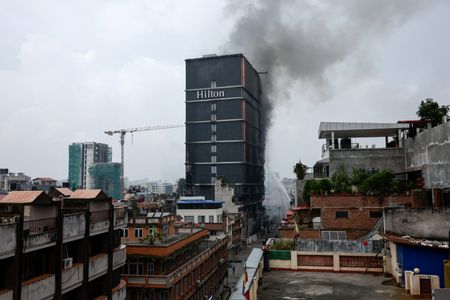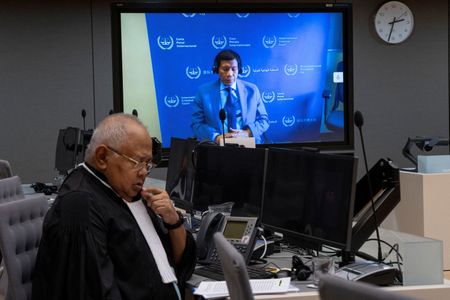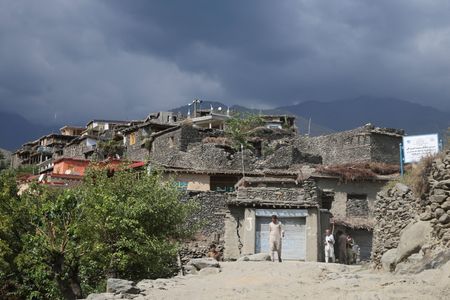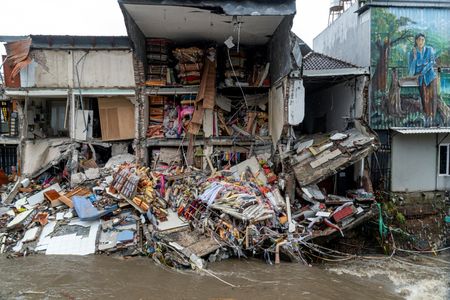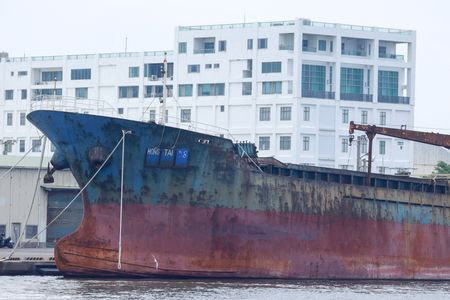By Saeed Shah
KABUL (Reuters) -The United Nations called on Thursday for the Taliban administration in Afghanistan to lift restrictions on its local female staff coming to work, warning that aid for earthquake victims and other vulnerable Afghans is at risk.
The Taliban authorities deployed security forces at the entrances to U.N. compounds and field offices, preventing Afghan women staff from entering, the U.N. said in a statement.
Taliban’s spokesperson did not immediately respond to a request for comment.
COUNTRY STRUGGLES WITH QUAKE FALLOUT, RETURNING REFUGEES, DROUGHT
Afghanistan is struggling to cope with the aftermath of an earthquake at the end of August that killed more than 2,200 people, the return of millions of Afghan refugees expelled from neighboring Pakistan and Iran, and a drought in the north of the country.
The Taliban has imposed more and more restrictions on women’s employment since coming to power in 2021, including at non-governmental organizations, but had previously not strictly enforced those rules for women working for the U.N. The Taliban administration has also banned girls from high school and women from university education.
The U.N. said that de facto arrangements in place up to now had allowed aid to be delivered.
“Such arrangements have enabled the United Nations to deliver critical assistance across the country, through a culturally sensitive and principled approach ensuring the delivery of assistance by women, for women,” the global body said.
The Taliban has said that it respects women’s rights in line with its interpretation of Islamic law and that it would ensure women could receive aid.
But in the earthquake aid effort, female humanitarian workers have come up against Taliban rules that they must travel only with a male guardian, and access to women in need has been difficult, according to the World Health Organization.
This week, the U.N. made an emergency appeal to raise $140 million to help earthquake victims. The U.N. charter does not allow discrimination against women, an issue that is also a major concern for potential donor nations. Afghanistan was already facing an aid crunch as crises elsewhere in the world, such as Ukraine and Gaza, attract more attention.
(Reporting by Saeed Shah in Islamabad and Mohammad Yunus Yawar in Kabul; Writing by Saeed Shah; Editing by Richard Chang)

